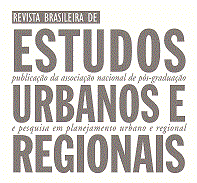Abstract
The human rights to water and sanitation were officially recognized by the United Nations in 2010. Despite this, these rights have not been explicitly recognized as basic rights in Brazilian legislation and their interpretation in law comes from the concept of universal access. However, little is discussed regarding the universalization of this access in spaces beyond the household, particularly in public spaces, serving people in socio-spatial vulnerability and who need urban furniture such as drinking fountains and toilets, either because they work or live there. It is in public spaces that homeless people, street vendors, women and girls, people with disabilities and transgender people are neglected, given the lack of access to water and public toilets. Thus, this work has sought to understand the possibilities of interpreting public sanitation policy in Brazil from the definitions of “universal access” and “household” using content analysis when reading these documents. It was concluded that the Law excludes public spaces, neglecting the aforementioned groups.
Keywords:
Public Toilets; Public Drinking Fountains; Human Rights; Water and Sanitation

 Thumbnail
Thumbnail
 Source: Own elaboration (2023).
Source: Own elaboration (2023).